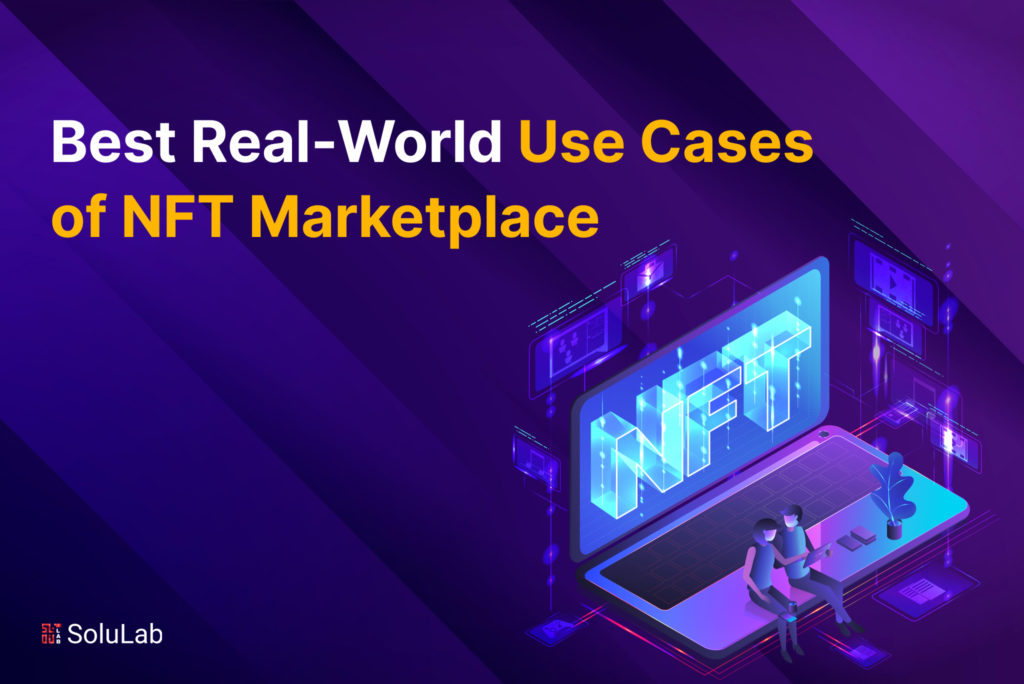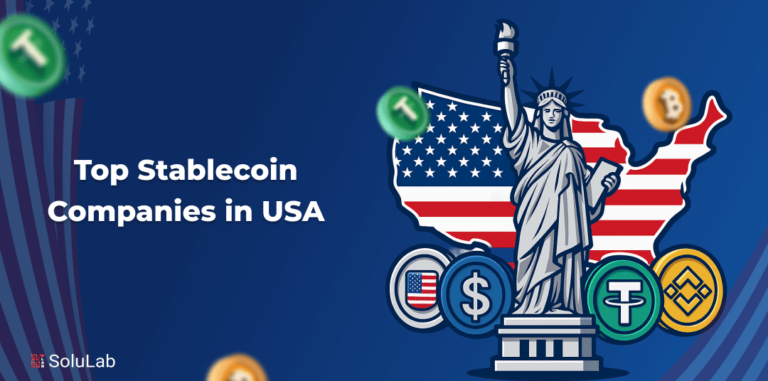
A piece of artwork by artist Beeple sold for $69 million in 2021 at the prestigious Christie’s auction house. This is an amazing accomplishment, especially since the item was only a few lines of code on a blockchain, sometimes referred to as a non-fungible token, or NFT.
Because they employ blockchain technology in a way that makes them unique, NFTs are digital assets that offer a safe, decentralized record of ownership and cannot be copied or replaced. NFTs are commonly used to trace the ownership of property, both digital and real because they cannot be reproduced or altered. However, they truly gained traction when they started registering the ownership of digital artwork that was available for purchase and sale on NFT markets.
NFTs are thought of by some as digital representations of the Bored Ape Yacht Club, with a market value in the millions. However, by offering other income streams and cost-cutting measures, NFTs have developed into assets that bring value to society across a variety of businesses.
Because of their many applications, NFTs—digital assets represented by cryptographic tokens—are growing in popularity. This is demonstrated by the fact that the non-fungible token (NFT) industry is predicted to generate $1.6 billion in sales globally by the end of 2023. It is nearly twice as much as it was in 2021.
-
Music
An increasing number of musicians are using blockchain technology—more especially, NFTs—to mint and preserve artifacts, album art, and digital audio.
Artists may tokenize their albums and songs, pay royalties to producers and creators, and, if they choose, sell their digital goods to generate extra cash by using NFTs. And artists like Grimes, Kings of Leon, and John Legend are using them. Kings of Leon members were reputedly the first to send a never-before-released rendition of their song “Time in Disguise” into space by turning it into an NFT, putting it on a rocket ship, and having it played there. This shows how excited the band was about the technology.
The music business may find NFTs most enticing for commercial reasons, notwithstanding their intrinsic cool element. Artists have long felt taken advantage of either unfair royalty arrangements or the dearth of opportunities for profit on streaming services. However, NFTs offer a means to eliminate the middleman and get a larger financial share. The “90/10 rule” is what NFT marketplace YellowHeart’s creator and CEO, Josh Katz, refers to as this.
Katz said to Built In earlier this year, “Traditionally, the artist takes home 10% of the revenue that they generate and other parties take 90%.” “With NFTs, the platform takes 10% and the artist takes 90%.”
-
Event Ticketing
If you’re among the millions of fans fighting for a spot on Taylor Swift’s highly anticipated—and, as of late, extremely contentious—2023 Eras Tour, you are well aware of how excruciating the ticket-buying process can be.
Popular event tickets typically sell out quickly, and the problem has gotten worse with the development of ticket bots. A 2019 Distil Networks analysis states that these bots, which purchase a large number of tickets and then resale them on secondary markets for significantly higher rates, account for around 39% of ticketing activity. This issue can deprive event organizers of extra cash and result in the purchase of counterfeit tickets, in addition to annoying and costing consumers.
NFT ticketing is one potential fix. Tickets in the form of NFTs, which are stored on a blockchain, may be used as passes to enter any real or virtual event. This makes them a more convenient and safe option for purchasing tickets than traditional methods. Purchasing NFT tickets directly from the artist eliminates the need for independent vendors, which should lessen frauds and scalping because of increased transparency and authenticity checks. Additionally, because blockchain technology is public, event planners might review transaction history to guard against fraud.
-
Virtual Real Estate
To have a complete understanding of virtual real estate, one must first grasp the idea of the metaverse, which is a network of immersive, shared virtual worlds where individuals may create, socialize, work, play games, and shop. The concept of a single, global metaverse is only theoretical as of right now. However, a lot of computer businesses are currently developing it, constructing virtual retail centers, offices, and mental health clinics.
One of the most significant and profitable parts of the metaverse as it now exists is virtual real estate, which can be found on virtual worlds like Roblox, Decentraland, and The Sandbox. There is a finite amount of land accessible in these virtual environments, much like in the real world, but NFTs are exchanged for currency. Stars like Snoop Dogg and Paris Hilton, along with major corporations like Gucci and iHeartMedia, have made their digital mark. A buyer may do anything from creating a virtual music venue to building a house and charging other players rent for it after they purchase a plot of virtual land and the NFT representing that parcel’s ownership is transferred to their cryptocurrency wallet.
-
Gaming
Over the past several years, play-to-earn games have been incredibly popular because they give players access to real-world financial incentives. Players earn in-game items like as virtual land, avatars, weapons, outfits, and other NFTs by performing tasks, competing with other players, and advancing through different game levels. These items may then be removed from the game and exchanged or sold on online markets.
The Sandbox, Splinterlands, and Gods Unchained are a few of the most well-known blockchain-based games available right now. Axie Infinity, a two-dimensional game featuring creatures called “axies,” which are essentially NFTs, is perhaps the most well-known and influential game in this space. Axie Infinity allows players to battle and breed with other axies for the chance to win cryptocurrency tokens known as “smooth love potions,” or SLPs. At its height, Axie Infinity users could make thousands of dollars a month for spending only a few hours a day on the game. According to DappRadar, the game ranked #1 in NFT collectibles in 2021 despite never being offered on well-known app stores and the general reluctance of the game business.
-
Food and Drinks
The “foodverse,” a portion of the metaverse where recipes, ingredients, and full meals may be purchased and sold as NFTs, is a creation of the food and beverage business. Well-known restaurants like Wendy’s, Panera Bread, Chipotle, McDonald’s, and Wendy’s have already started to make progress in this area in an effort to take advantage of its branding and financial prospects.
NFTs can also serve as a kind of permit to access exclusive dining establishments and services in the real world. For instance, the NFT membership card Flyfish Club offers unrestricted admission to a 10,000 square foot venue in New York City that houses a restaurant, cocktail bar, and outdoor area in addition to the numerous social, cultural, and culinary events that are held there. Then there is the Crypto Baristas NFT, which sells tickets to the yearly New York Coffee Festival and discounts for its unique coffee brand.
-
Supply Chain
Over the past several years, there has been a lot of technological innovation in the global supply chain. For example, blockchain technology has been adopted to enhance monitoring and transparency, streamline payments, encourage more ethical and sustainable sourcing practices, and much more. Specifically, the use of NFTs can facilitate the tracking and verification of goods as they move from raw materials to final goods along the supply chain.
On its way to a customer, the typical product encounters several touchpoints. Along the way, an NFT marketplace platform can serve as a kind of digital twin by being coupled with a particular product to record and authenticate each touchpoint. Then, when the product is transported from producer to retailer to buyer throughout the supply chain, ownership of that NFT may be transmitted as well, giving everyone a greater understanding and ability to improve the product experience.
-
Decentrasied Finance Loan
NFTs are tradable, much like a lot of other assets; this means that an owner may trade in an NFT for a loan from a decentralized financial company.
This is how it operates: Prior to anything else, the borrower and lender must come to an agreement about the value of the item in question, the loan’s repayment terms, and the amount of interest that must be paid back in addition to the principal. After that, the NFT is locked into a smart contract, which is a self-executing software kept on a blockchain and only activated when specific predefined criteria are satisfied. This contract will remain in place for a predetermined period of time or until the entire loan amount (plus interest) is paid back.
Even if the NFT is included in this contract, the smart contract itself is the asset’s technical owner and will stay so until the contract’s predetermined terms have been met or terminated. No one has access to the real NFT, not even the smart contract escrow. However, in the event that the borrower fails on the loan, the NFT immediately becomes the new owner of the asset and is delivered to the lender’s wallet as collateral for the remaining sum.
-
Art and Collectibles
A compilation of NFT use cases would be incomplete without include the most widely used use of NFTs: as tradable digital goods that may be amassed and cherished.
Many of the NFTs gathered nowadays are thought of as works of digital art; initially, collecting NFTs was reserved for the rich and tech-savvy, but due to the enormous popularity of NFT art collections like CryptoPunks and Bored Ape Yacht Club, the practice has quickly spread to the general public. While some items sell for only a few dollars, others can fetch hundreds of thousands or even millions of dollars.
These days, digital artists have access to new avenues for their work in addition to the potentially profitable prospect of collecting NFTs as works of art. Direct transactions between artists and consumers are made possible via NFT markets, while tokenization enables artists to receive royalties from subsequent purchases. Once acquired, NFTs can be used as a profile image on social media and, ultimately, the metaverse. They can also be sold like any other asset and established as a permanent part of a person’s collection.
Read Also: How To Launch Your Own NFT Marketplace Website in Less Than 2 Days?
-
Fashion
In addition to becoming collectibles, NFT apparel has become popular as statement pieces that avatars may wear to mingle with friends, go to concerts, or attend meetings in the virtual world.
Already, major businesses have joined the bandwagon. An NFT bag allegedly sold for more than $4,000 on Roblox, by Gucci, making it more valuable than the real bag. A nine-piece collection of NFTs, each coupled with actual apparel pieces, was auctioned by Dolce & Gabbana for an estimated $5.6 million last year. Additionally, the fast-fashion chain Forever 21 debuted a virtual storefront in Decentraland earlier this year, offering NFT fashion products that were inspired by things seen in its physical stores and online.
In a recent Forbes op-ed, Yanie Durocher, the founder of the fashion consultancy firm POMPOM Creative, stated, “Being part of the fashion industry, I see incredible opportunities with NFTs.” PR and advertising for influencers, creators, artists, and fashion designers will be able to achieve a previously unheard-of degree of dissemination. A designer’s clothing might be seen everywhere in the globe, and not only in a chance social media post including an advertisement; rather, it may be worn by influencers and prospective buyers who buy the digital skins.
-
Web3 Identification
One of the main selling points of blockchain technology and the Web3 area it is helping to create is total sovereignty over one’s online identity; the upcoming internet version promises to return ownership to the user. And NFTs—especially utility NFTs—might play a significant role in that.
Utility NFTs are distinct digital assets on the blockchain, just like any other NFT. However, their function is to provide unquestionable evidence that you are the owner of anything else, as opposed to only being determined by their market worth. This might be used for an airline ticket, your property deed, or your college graduation.
Access to special discounts or bargains, premium material, unique events, and more can be granted using Utility NFTs. Furthermore, if a creator creates a governing body, some or all of the authority in a particular project is transferred to a cooperative community that functions via a token-based system, much like decentralized autonomous organizations, or DAOs.
Utility NFTs improve the idea of digital assets in whichever way they are applied, giving owners a stronger grip over their belongings and identity in the rapidly developing Web3 environment.
Conclusion
To sum up, “Best Real-World Use Cases of NFT Marketplace” explores the many uses of non-fungible tokens (NFTs) across a variety of sectors, demonstrating how they may completely change digital rights management, decentralized finance, and asset ownership.
SoluLab is a leading NFT development Company that provides complete NFT marketplace development services customized to fit the specific demands of clients, as businesses want to capitalize on the rising trend of NFTs. Our team of knowledgeable NFT developers can help organizations make use of this cutting-edge technology for improved digital experiences, more income streams, and decentralized asset ownership. They have the know-how to successfully negotiate the intricacies of developing an NFT marketplace. NFTs are changing the landscape of digital commerce and asset tokenization, influencing everything from gaming and real estate to digital art and collectibles. Join together with SoluLab to go into the exciting and innovative realm of NFTs and achieve success.
FAQs
1. What are NFTs, and how do they differ from cryptocurrencies?
NFTs, or non-fungible tokens, are unique digital assets that represent ownership or proof of authenticity of a particular item or piece of content. Unlike cryptocurrencies like Bitcoin or Ethereum, which are interchangeable and have equal value, NFTs are indivisible and each token is distinct.
2. What are some real-world applications of NFTs?
NFTs have a wide range of applications, including digital art and collectibles, gaming assets, virtual real estate, intellectual property rights, music royalties, ticketing, and more. They enable creators and owners to tokenize and monetize their digital assets in new and innovative ways.
3. How can businesses benefit from leveraging NFTs?
By leveraging NFTs, businesses can unlock new revenue streams, enhance customer engagement, establish digital ownership rights, foster community involvement, and create scarcity for digital assets. NFTs also offer opportunities for brand promotion and marketing through unique and interactive experiences.
4. What are the technical requirements for developing an NFT marketplace?
Developing an NFT marketplace requires expertise in blockchain technology, smart contract development, user interface design, and security protocols. It also involves considerations such as scalability, interoperability, gas fees, and compliance with regulatory frameworks.
5. Are there any legal considerations or challenges associated with NFTs?
Yes, legal considerations for NFTs include copyright infringement, intellectual property rights, licensing agreements, tax implications, fraud prevention, and regulatory compliance. It’s important for businesses to consult legal experts to navigate these complexities and mitigate risks.
6. How can SoluLab help businesses with NFT marketplace development?
SoluLab is a leading NFT development company offering specialized NFT development services tailored to the unique needs of businesses. Our team of expert NFT developers provides end-to-end solutions for NFT marketplace development, including blockchain integration, smart contract development, user experience design, and security auditing.
7. What are some successful examples of NFT marketplace use cases?
Successful examples of NFT marketplace use cases include platforms like OpenSea, Rarible, NBA Top Shot, CryptoPunks, Decentraland, and Sorare, which have facilitated the buying, selling, and trading of digital assets ranging from artwork and collectibles to virtual real estate and sports memorabilia.






